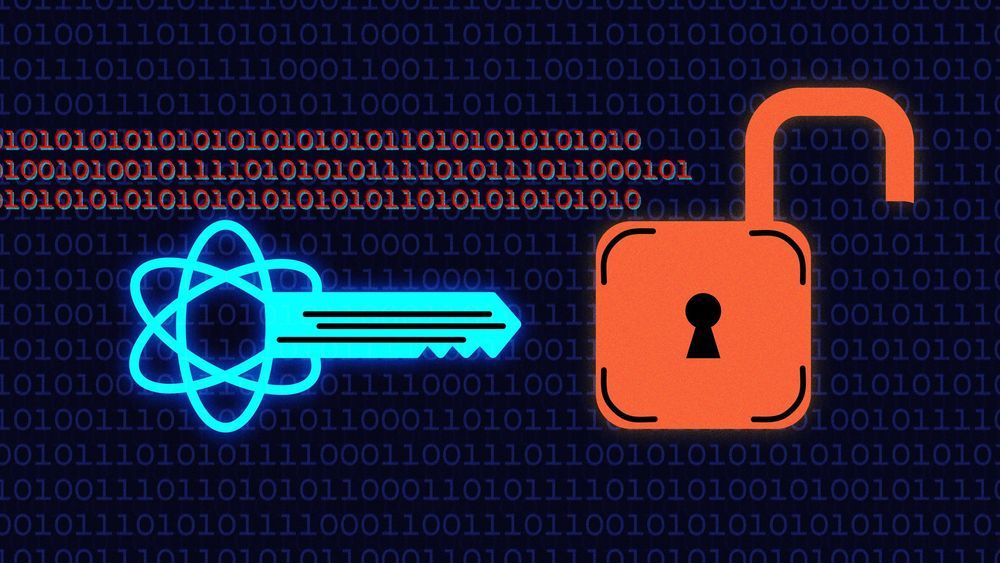Yes, we know that sometimes it feels like they just tack the word quantum on new technology and call it a day like we are all living in the Marvel Cinematic Universe. Nevertheless, quantum technology is very real and is just as exciting. Our better understanding of the quantum world and handle on the principals will help us improve everything from computing to encryption.
Category: encryption – Page 47

Quantum radar has been demonstrated for the first time
One of the advantages of the quantum revolution is the ability to sense the world in a new way. The general idea is to use the special properties of quantum mechanics to make measurements or produce images that are otherwise impossible.
Much of this work is done with photons. But as far as the electromagnetic spectrum is concerned, the quantum revolution has been a little one-sided. Almost all the advances in quantum computing, cryptography, teleportation, and so on have involved visible or near-visible light.


These 4 Gmail alternatives put your privacy first
If you don’t want your email provider, its partners, or even hackers skimming your messages, choose one of these providers, which offer end-to-end encryption and other measures.
[Photo: courtesy of Tutanota].
How will quantum computing change the world? | The Economist
The potential for quantum computing to crack other countries’ encrypted networks has captured the attention of national governments. Which of the world’s fundamental challenges could be solved by quantum computing?
Click here to subscribe to The Economist on YouTube: https://econ.st/2xvTKdy
For more from Economist Films visit: http://films.economist.com/
Check out The Economist’s full video catalogue: http://econ.st/20IehQk
Like The Economist on Facebook: https://www.facebook.com/TheEconomist/
Follow The Economist on Twitter: https://twitter.com/theeconomist
Follow us on Instagram: https://www.instagram.com/theeconomist/
Follow us on Medium: https://medium.com/@the_economist

New SystemBC Malware Uses Your PC to Hide Malicious Traffic
A new malware strain is being distributed by threat actors via exploit kits like Fallout and RIG to hide malicious network traffic with the help of SOCKS5 proxies set up on compromised computers.
The malware, provisionally named SystemBC by the Proofpoint Threat Insight Team researchers who found it, uses secure HTTP connections to encrypt the information sent to command-and-control servers by other strains dropped on the infected machines.
“SystemBC is written in C++ and primarily sets up SOCKS5 proxies on victim computers that can then be used by threat actors to tunnel/hide the malicious traffic associated with other malware,” says Proofpoint.

New Android Ransomware Uses SMS Spam to Infect Its Victims
A new ransomware family targeting Android devices spreads to other victims by sending text messages containing malicious links to the entire contact list found on already infected targets.
The malware dubbed Android/Filecoder. C (FileCoder) by the ESET research team which discovered it is currently targeting devices running Android 5.1 or later.
“Due to narrow targeting and flaws in both execution of the campaign and implementation of its encryption, the impact of this new ransomware is limited,” ESET’s researchers found.


How an authoritarian regime will intercept all internet traffic inside its country
How dictators work in the 21st century.
The new president of Kazakhstan is now proving that he will keep the old, oppressive systems alive for the 21st century, using advanced technical tools.
The man in the middle: Beginning last week, Kazakhstan’s government is intercepting all HTTPS traffic inside the country, ZDNet reports. HTTPS is a protocol meant to offer encryption, security, and privacy to users, but now the nation’s internet service providers are forcing all users to install certificates that enable pervasive interception and surveillance.
On Wednesday, Kazakh internet users were redirected to web pages instructing them to install the government’s root certificate in their web browser, which enables what’s called “man in the middle” interception of internet traffic, decryption, and surveillance.

Researchers use kirigami to spin terahertz rays
CHICAGO, July 2 (Xinhua) — With a light-spinning device inspired by the Japanese art of paper cutting, researchers at the University of Michigan (UM) have detected microscopic twists in the internal structure of plant and animal tissue without harmful X-rays.
The approach is the first that can fully rotate terahertz radiation in real time, and could open new dimensions in medical imaging, encrypted communications and cosmology, according to a news release posted on UM’s website on Monday.
With an eye to exploring how chirality may help distinguish tissues, the researchers gathered everyday biological materials to look for differences in the absorption of clockwise- or counter-clockwise-rotating radiation in the terahertz spectrum. They studied a maple leaf, a dandelion flower, pork fat and the wing case of an iridescent beetle.